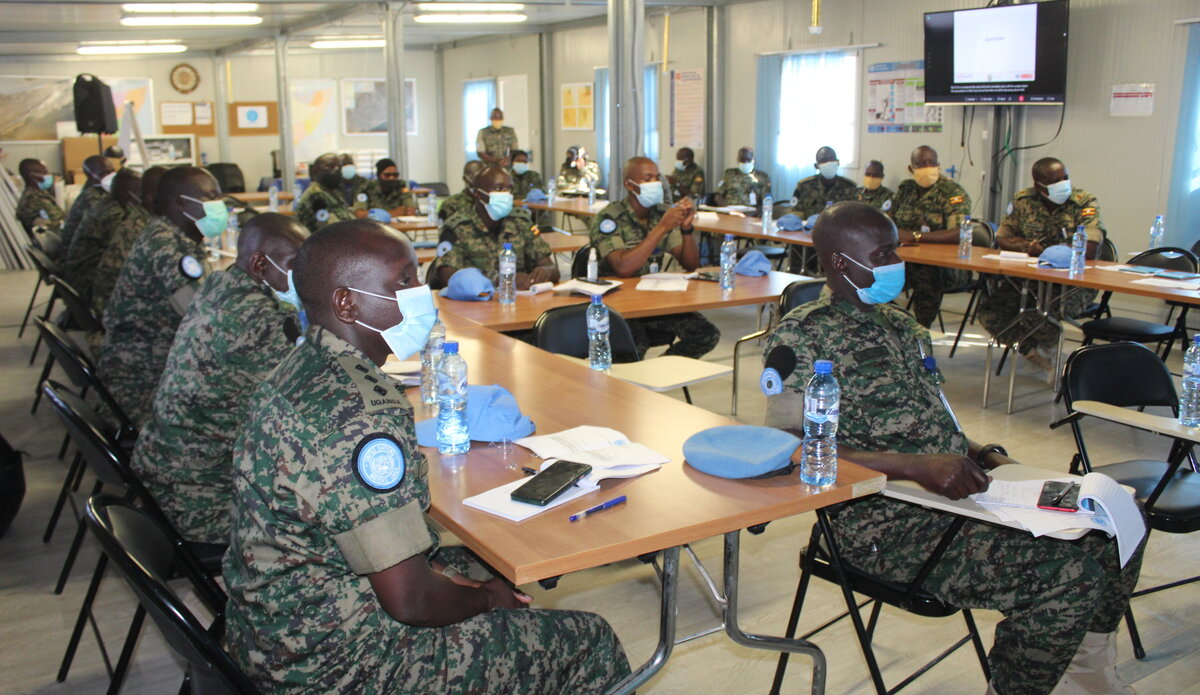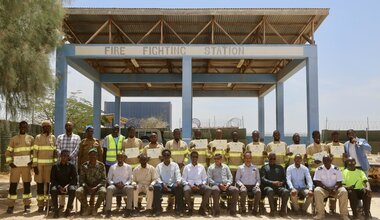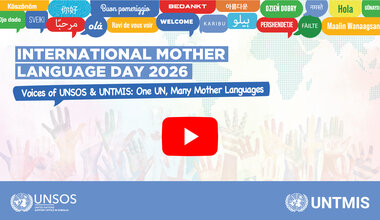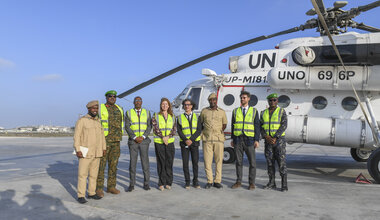Twenty-eight United Nations Guard Unit (UNGU) Personnel Complete Mission Induction Training
Mogadishu - On arrival in Mogadishu to serve, 28 personnel of the United Nations Guard Unit (UNGU) underwent a five-day induction training, which was held with the support of the United Nations Support Office in Somalia (UNSOS).
The 28 personnel from the Uganda Peoples Defense Forces (UPDF) were trained on the UNSOS and UNSOM mandate, the Somali culture, conduct and discipline, prevention of sexual exploitation and abuse, International Humanitarian Law, human rights law, environmental compliance, radio communications, UN Security Integrated Security Structure, surveillance detection and IED recognition.
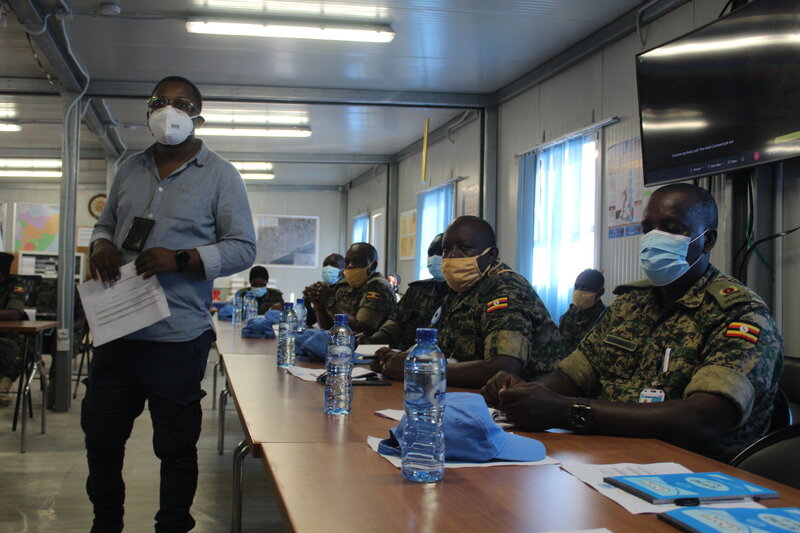
Other topics covered at the training included HIV/AIDS in the workplace, UN use of force guidelines and the UN firefighting system.
UNSOS Chief Training Officer, Mr. Patrick Duah, said the tailored training is provided to all new arrivals to prepare them for the task and responsibilities ahead.
“The training serves as an introductory program focusing on the mission’s goals and mandate, as well as sensitizing on issues of importance to the mission and the United Nations,” said Mr. Duah.
Speaking during the opening day of the training, the Principal Security Advisor (PSA a.i), United Nations Security, Mr. Michael Lynch, underlined the significance of the guard unit to the security of personnel and to the operations of UN missions in Somalia.
“Without you (the guard unit), we cannot be here ourselves. It is that simple. To perform their duties, UNSOM and UNSOS require a fully effective and dedicated guard unit, ” said Mr. Lynch.
“There is nothing more significant to us than that, as far as we are concerned,” he added.
The training model was hybrid, with some of the participants joining virtually.
UNSOS Gender Advisor, Ms. Judith Mirembe, urged participants to be gender-sensitive, and called for everyone to be responsible and accountable to themselves and others.
“We need to ensure accountability of institutions and appropriately address the grievances of both men and women, while at the same time laying the foundation for sustainable peace and reconstruction,” said Ms. Mirembe.
Dr. Omar Abdulle Alasow, Senior International Humanitarian Law and Human Rights Law adviser to AMISOM, introduced International Humanitarian Law (IHL) principles and rules applicable to the situation in Somalia and highlighted the importance of compliance with IHL obligations in armed conflicts. “You are bound by specific IHL principles and rules and are expected to apply the highest standard in relation to the application of IHL,” said Dr. Alasow.
The UN Guard Unit plays a crucial role in the United Nations’ efforts to help bring peace and stability to Somalia. UNGU personnel protect UN staff and UN facilities and installations in Somalia, including protecting UN compounds in Mogadishu to enable UN staff to carry out their mandate.
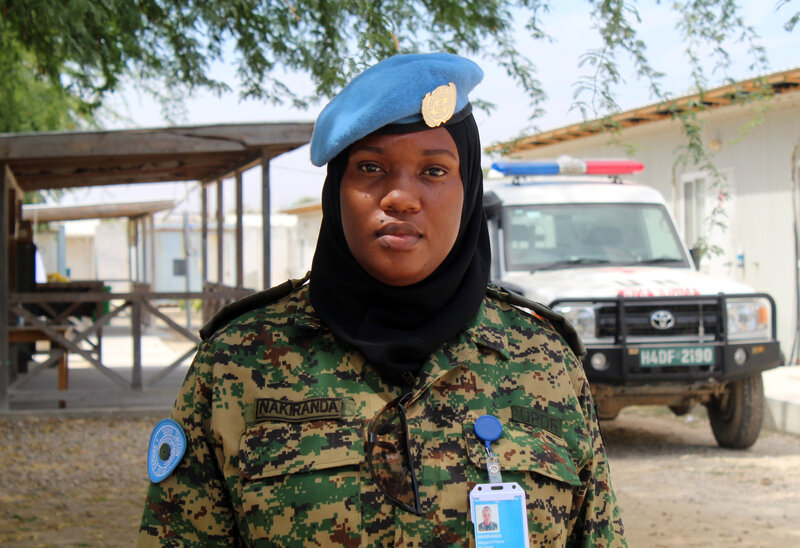
Lt. Margaret Nakiranda, one of the UNGU participants, said the training was important in instilling respect for self, for others and for the mission’s mandate.
“I appreciate the facilitators for highlighting matters of gender and calling on us to be gender sensitive as we carry out our duties,” said Lt. Nakiranda.
She then said the training had challenged them to “to adhere to the knowledge we got during the induction. If we do so, our mission will be successful.”
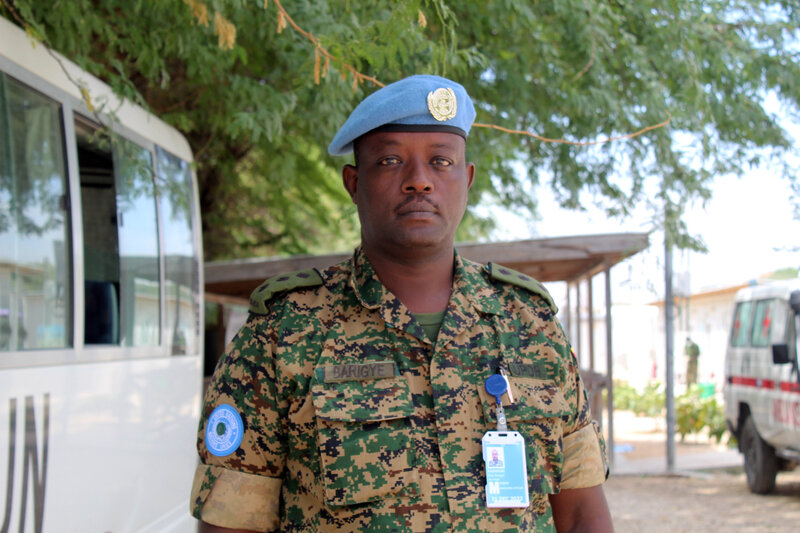
Capt. Barigye Boaz Kazinduki said that the knowledge acquired had put him in good stead for his one-year tour of duty in Somalia.
“I look forward to practising what we learnt, and to continue learning through practical work and sharing experiences with others,” said Capt. Kazinduki.
 UN
UN
